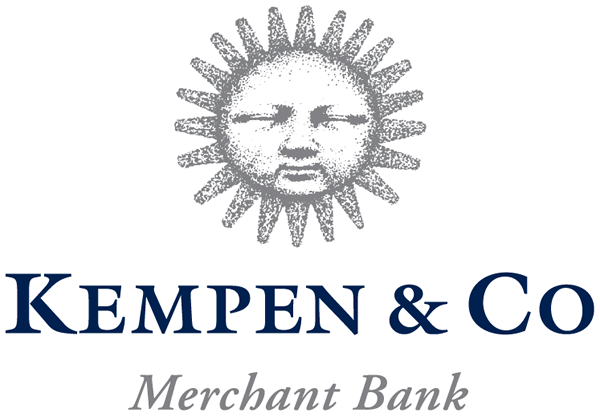A good understanding of the finance of your organization is key to being able to help it move forward. Whether you are managing a division, a team or work in an expert role, a solid basic understanding of your organization’s financial aspects greatly enhances your capabilities to be more effective and contribute to its financial sustainability. Or, if you are in a client-facing role, understanding your client and their financial position helps in providing better outcomes for both of you.
This compact three -day program provides you with essential financial knowledge and insights.
Program components
- Analyzing and interpreting financial accounting statements
While every organization has to subscribe to a Financial Accounting model, it is rarely a good model to base business decisions upon. Simply, the information comes too late and is limited by certain concepts. However, as it is often used to evaluate business performance, it will be discussed in detail in order to understand what the numbers tell you – and more importantly what they don’t tell you. Participants will acquire a hands-on framework to analyze and interpret any organization’s financial statements. - Introducing Discounted Cash Flow analysis and the time value of money
- Knowing the difference between ‘book value’ and ‘true value’ and the relative value drivers to ensure you can add value in your decision making
- Linking strategy to financial performance
- Understand the link between strategy and financial performance to ensure long term value creation.
The real link of accounting and finance to the performance of organizations is mapped out. It is crucial that managers understand this connection in order (to be perceived) to be delivering value to their organizations.
Linking non-financial drivers that are strategic to the organization’s financial performance. - Management accounting and performance
While Financial Accounting is compulsory, Management Accounting is not. However, organizations with excellent management information systems have a significant competitive advantage. When an organization is under pressure, a reflex reaction is often to slash costs. This will inevitably erode the intangible value of the organization. We discuss a more creative approach to identify ways of improving performance. - Making investment decisions
Current developments in the field of behavioral finance help to understand better ways to forecast and signal common pitfalls in decision-making. How to understand and use these as a manager? And which financial decision tools are at your disposal to make decisions? While valuations most often rely on discounting future cash flows, other valuation methods will also be discussed.
At the end of the program, a wrap-up session will facilitate participants to assess their most important learnings in relation to their own role and organization.
How you will benefit
- Break through the barrier of finance language
- Understand the basic accounting model and its limitations
- Analyze and interpret financial statements within the context of your industry and company fundamentals
- Grasp what drives the most common errors in business and how to avoid them
- Identify risks and understand the options available to manage risk
- Link the risk appetite to financial decision making
- Apply management accounting tools to business problems
- Understand the budget process and forecasting techniques
- Link strategic imperatives to financial reality
- Understand how to incorporate ESG into reporting, analysis and financial decision making
- Identify key value drivers to help manage the value of a business
- Understand different valuation techniques and respective benchmarks
- Obtain essential tools and techniques in presenting a business case
The next step
At AIF we offer carefully crafted learning paths designed to help you delve deeper into various facets of finance. Whether you seek to sharpen your existing skills or explore new horizons, our short, intense programs are tailored to meet your needs.
Once you have completed the Finance for Non-Financial Managers training, here is a glimpse of the follow-up programs you should consider in order to continue your journey towards financial mastery:
Valuation: Understanding company valuation is fundamental in corporate investment decision making. Learn to apply the Net Present Value Rule in capital budgeting and to make estimates of a company’s value. Get a lot of practice in the multiples and the discounted cash flow method.
Mergers and Acquisitions: Learn to navigate this complex and dynamic field. A cross-disciplinary program providing practical knowledge and tools across the full-spectrum of the M&A process, from pre-deal strategy, due diligence, valuation, negotiation, regulation, and completion to post-deal integration and workforce motivation.
Private Equity: Dive into the world of private equity and venture capital. This program provides a solid understanding of private equity funds and the role of private markets in asset allocation, venture capital, growth capital, buyouts and turnarounds, reporting and performance measurement, and the institutional investor perspective.
Entrepreneurial Finance: Venture Capital Financing: Gain an understanding of the unique challenges and opportunities in the startup and venture capital ecosystem. You will learn how to assess early-stage companies and make strategic investment decisions.
Understanding Global Macroeconomics: Stay ahead of global economic trends and their impact on financial markets and your organization. Equip yourself with the tools to make sound financial decisions in an ever-changing world.
Advanced Financial Statement Analysis: Discover how to read and understand financial statements. Companies’ balance sheets, income statements, and cash flow statements tell you a lot on profitability, growth, risk, and value. But to unlock that wealth of information, you have to know where to look and how to analyze the numbers. This program will provide you with an analytical framework and practical tools to do exactly that.
Psychology of Risk: Explore the human element in risk management. Understand how psychology and behavioral biases influence financial decision-making, and develop strategies to mitigate risks effectively.
Our programs are designed to provide you with top-notch knowledge and practical skills. Our expert faculty ensure that you will gain a competitive edge in your career. Take the next step in your professional learning path by choosing one or more of these specialized programs.
To learn more or to discuss how they align with your career goals, please don’t hesitate to reach out to us via [email protected] or tel. +31 (0)20 246 7140. We are here to assist you in developing a personalized learning journey that empowers you to excel in the world of finance.
Program length
3 days
| Day 1 | 09:00 – 17:00 |
| Day 2 | 09:00 – 17:00 |
| Day 3 | 09:00 – 17:00 |
Analyzing and interpreting financial accounting statements
-
- Understanding the accounting process
- Applying the fundamental accounting concepts
- Tools used to identify ‘value’
- Why ‘Cash is King’
- Common ratios to assess the financial risk of the organization
- Understanding commonly used words and acronyms, e.g. EBITDA, ROCE, WACC
- Learning the limitations of the traditional accounting model and how to overcome them
Introduction to Discounted Cash Flow analysis and the time value of money
- Framework for analyzing and interpreting any company’s financial statements
Understanding Finance and Performance
- Linking accounting to strategy
- How risk management drives value
- How value drivers are identified and what benefits they deliver
- The most commonly applied valuation tools
Management Accounting and Performance
- Understanding what drives a company’s ‘bottom line’
- Analyzing it from a customer perspective
- Customer profitability analysis
- A measurement system to include both financial and non-financial metrics
- Managing risk and building certainty to add value
- Analyzing break-even and contribution analysis
- Identifying incremental cash flows
Making Investment Decisions
- Discounted Cash Flow analysis (DCF)
- Net Present Value (NPV) of an investment
- Forecasting cash flows
- Measuring the required rate of return – Cost of Capital, WACC, IRR
Wrap-up session
This interactive program is composed of a combination of lectures + exercises to practice the concepts.
Read more
> Susan Hansen: Strategy comes first, financial decision making second, not the other way around
The Finance for Non-Financial Managers program is suitable for all types of non-financial professionals. It endows non-financial managers and experts with the insights and tools to understand ‘the numbers’ to help them make better decisions. And a solid basic understanding of the organization’s financial aspects greatly strengthens the capabilities to be more effective and contribute to its future-proofness.
Prerequisite
Proficiency in English is vital for following this training program effectively.
Is this program not the right fit for you?
We offer other programs which you might find more interesting or useful, such as:



















